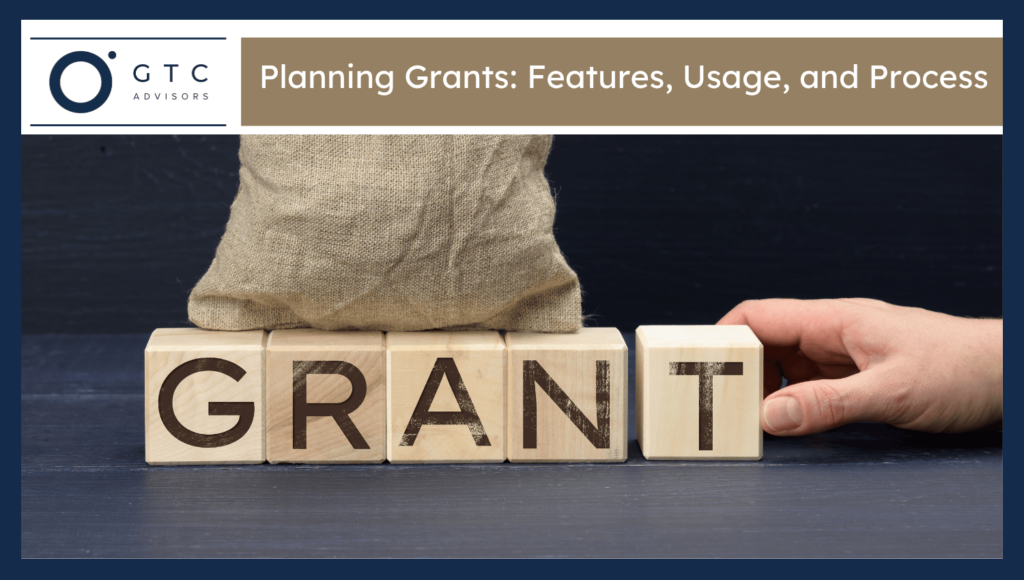Planning grants are financial awards given in order to facilitate the initial stages of project development. We offer these grants for research, need assessment, strategic planning, foundational work and future programs or initiatives. Planning grants are often used to assess feasibility, consult with stakeholders and develop detailed plans or proposals to gain access to larger funding opportunities. They are particularly useful to nonprofits, schools, and government departments working on complex projects. These grants enhance the quality of the projects, minimising risks and leading to lasting effects and projects by supporting planning.
What Are the Key Features of Planning Grants?
Here are four key features of planning grants:
- They offer short-term funding, usually covering a few months to one year, to support early project development stages.
- They are a non-construction focused, meaning funds cannot be spent on buildings, renovations or physical infrastructure.
- They help in strategy development, including feasibility studies, stakeholder consultation and setting up goals or schedules.
- They often precede larger grants and assist organisations to establish a good base for bigger grant applications.
What Can Planning Grants Be Used For?
Here are six common uses of planning grants:
- Feasibility Studies: They help in the assessment of a proposed project on whether it is practical, sustainable, and in line with the long-term objectives.
- Needs Assessments: Planning grants help to find out what gaps, problems, and priorities exist in an organisation or a community.
- Stakeholder Consultations: It assists in seeking feedback from partners, community members or subject matter experts in shaping the direction of the project.
- Strategic Plans: They create specific roadmaps containing objectives, schedules, and tasks that can be executed in the future.
- Environmental Reviews: It also reviews possible environmental impacts and compliance with regulations.
- Site Analyses or Market Research: Planning grants help in analysing the locations of the project sites, economic factors, or market demands to make effective decisions.
What Is the Application Process for Planning Grants?
Below are the five main steps for the application of planning grants:
Grant Opportunity Announcement
The funding agencies publish detailed announcements that describe the grant’s objective, also the eligibility criteria, available funding and application deadlines.
Preparation of Proposal
The applicants prepare a detailed proposal, which generally contains a project summary, objectives, schedules, a budget, and expected results.
Submission and Review of Proposal
The completed proposal is submitted by using the specified portal or system. Reviewers then assess it according to factors like feasibility, relevance and impact.
Award Decision
After reviewing, selected applicants are notified of the award. Applicants who are not successful can be given feedback or advised to apply in future.
Implementation and Monitoring
After being awarded, the planning of the project starts. The recipients of the grants are expected to stick to the grant plan approved and may need to provide updates and financial records to be monitored.
How Are Planning Grants Monitored?
Here are four key ways planning grants are monitored:
- The progress reports monitor milestones, schedules, and delays during the grant period.
- Financial reporting is also done to maintain expense consistency between approved budgets and grant conditions.
- Submission of final plans is necessary to present the results and direction made with the aid of the grant.
- Post-grant evaluation takes place to check the efficiency of the planning process and the possibilities of its implementation in the future.
Who Offers Planning Grants?
Here are the four main sources that offer planning grants:
- Federal agencies fund early-stage projects in areas such as health, education and infrastructure.
- The state and the local government assist in such areas as community planning, economic development and environmental evaluations.
- Strategic activities are financed by the private foundations in such spheres as public health, arts, and innovation.
- The international donors provide grants to be used towards global development, capacity development and sustainability planning.

George C. Tagg, Jr.
George serves as a trusted counsel to business leaders, non-profit executives, and management teams. George is a licensed attorney with a master’s in international affairs and over 20 years’ experience in the U.S. Congress, Department of State, Department of Defense, global public policy, and political campaigns.


